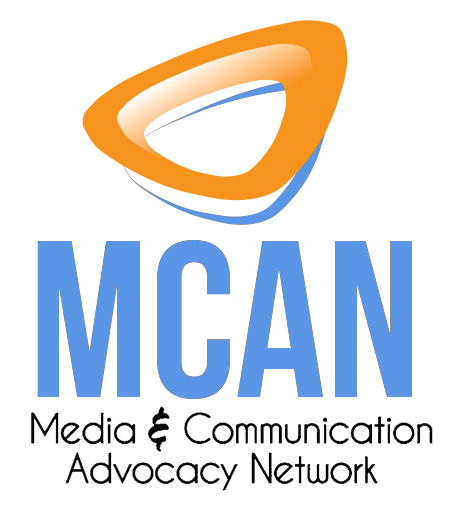The United Nations Population Fund (UNFPA) in collaboration with it’s implementing partners have trained health reporters on Comprehensive Sexuality Education (CSE) Reporting.
Speaking at the training, Ms. Doris Mawuse Agblobitse, National Programme Analyst of Communication Residential Mobilisation, urged the Journalists to use their medium to accurately educate young people and also encourage behavioural change.
She indicated that, young people, especially adolescent girls, are at the heart of UNFPA, explaining that, millions of girls are forced into unwanted sex or marriage, contributing to the risks of unsafe abortions, sexually transmitted infections, HIV, unwanted pregnancies,
death or disability due to childbirth, and to name a few.
“Adolescent fertility in Ghana stands at 14.2%. Pregnancy and childbearing among adolescent school girls have emerged as important risk factors for their increased school dropout rates. Adolescent death contribution to maternal mortality also remains a challenge in Ghana, with adolescent girls (10-19 years) contributing to 7.75 per cent of maternal deaths. Among females 15-19 years, only 6.3 % use a modern family planning method, showing a huge gap between knowledge and use of contraceptives among adolescent girls; which generate repercussions that include unsafe abortions,” She noted
This according to Ms. Agblobitse, called for the media capacity enhancement, to ensure frequent education to inform people.
“I encourage you all to use your reach and influence to give young people the information they need to better understand sexual and reproductive health issues and how it can enhance their lives and the welfare of their societies,” She stated.Ms. Agblobiste, further reiterated that, UNFPA together with its implementing partners will continue to advocate policies and programmes that will invest in adolescents and youth and as well as provide a positive environment for them.
Meanwhile, she said, they will continue to periodically engage the media to build their capacity towards public education and advocacy for empowering Adolescent girls with the right knowledge, attitudes, values and skills to make informed decisions about their health.
With funding support from the Canada government, the two-day session was held at the Hillview Guest Center at Teiman-Abokobi, the capital of Ga East district of the Greater Accra Region, from 31st May to 1st June, 2019.
Making a presentation on the Adolescent Girls Programme, Esi Awotwi, DrBA at the UNFPA, noted that, Adolescent girls account for 21.7 per cent of the female population and for about half of the 5.5 million adolescent population of Ghana.
Indicating that, the period of adolescence, profoundly influences girls’ future potential and life outcomes. “It is a time of key transitions: from girlhood to womanhood; from primary to secondary education; from education to work and family life. Coupled with gender inequality and poverty, those transitions often expose girls to higher chance of school dropouts; child marriage; sexual and gender-based violence, abuse and sexually transmitted infections; adolescent pregnancy, obstetric fistula and maternal mortality; anaemia and others.”
The presentation also revealed that, the risks and vulnerabilities facing adolescent girls have been increasingly recognized in Ghana, resulting in prioritization of girls’ issues by different government policies.
She noted that, “A UNFPA-UNICEF joint programme, with funding support from the Canadian Government was initiated in August 2018 to complement the Government of Ghana’s efforts at advancing the implementation of policies and strategies focusing on adolescent girls’ health, education and well-being. The joint programme aims at scaling-up Ghana’s policy response on adolescent girls through the modelling and roll-out of interventions that facilitate adolescent girls’ access to gender-responsive comprehensive sexuality education and youth-friendly sexual and reproductive health services, including contraception in 36 districts.”
According to her, the UNFPA component of the programme was targeting adolescent girls 10 -19 years in and out of school, married and unmarried, pregnant girls and adolescent mothers as primary beneficiaries; and girls aged 20-24 years as secondary beneficiaries; with special focus on migrant girls (Kayayei), girls with disabilities and girls in humanitarian situations across 30 selected districts in 8 regions.
However, under the Joint Programme, UNFPA employs a multi-sectoral approach with the government, CSOs, traditional authorities, faith based organizations, academia, the private sector and the media at the national and decentralized levels to;
a) Create demand for rights and services through CSE delivery,
b) Supply quality gender-responsive ASRH services, and
c) Facilitate an enabling environment for ASRH service delivery and gender equality.
These interventions, Esi Awotwi said, are geared towards systemically empowering the girls to make informed choices on issues affecting them, exercise their agency (discretion) on SRHR issues and gender equality, and access quality, gender-responsive SRH services.
Esi, at the end of her presentation reemphasized that, “Training of teachers, health workers, CSO professions and community members, including men and boys is a key strategy to strengthen capacities of the education, health and community systems to provide gender-responsive comprehensive sexuality education (CSE) and youth-friendly sexual and reproductive health services, including contraception and post abortion care services to adolescent girls.
Policy makers at varied levels and key gatekeepers are being engaged in consultations as a means to advocate for, and facilitate a paradigm shift for promoting investments in adolescent girls. Law enforcement agencies, particularly police personnel are engaged in capacity building initiatives to enable the prevention and effective management of gender-based violence and harmful traditional practices affecting adolescent girls. Mentoring, school clubs, safe spaces and social media activities serve as entry points for empowering the adolescent girls and facilitating their meaningful participation in promoting girls’ access to CSE and ASRH services.”
The training had participants drawn from print, broadcast and online media, who were urged to accurately report on Comprehensive Sexuality Education (CSE).
Source : Sammy Adjei
http://www.newsghana.com.gh

